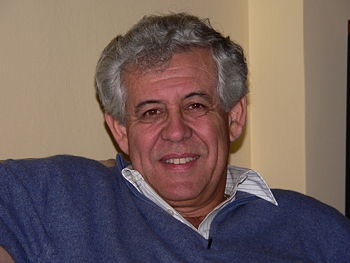Peruvian government turns back to words rather than bullets
 Buenos Aires/Lima - "Imagine that a bulldozer breaks through a wall in your house and workmen dig in your garden with drills, lamps and picks because a businessman thinks there is oil there. He does not even need you to agree, because he already has permission from the mayor's office."
Buenos Aires/Lima - "Imagine that a bulldozer breaks through a wall in your house and workmen dig in your garden with drills, lamps and picks because a businessman thinks there is oil there. He does not even need you to agree, because he already has permission from the mayor's office."
Francisco Miro Quesada Rada, director of El Comercio, Peru's most important newspaper, used the strong comparison to describe the feelings of indigenous people as oil companies, loggers and farming giants, at the request of the government, enter the Amazon region that constitutes the Indios' native habitat.
For months, Peruvian President Alan Garcia ignored the peaceful protests of the Indios, and indigenous protestors finally clashed with security forces last week, near the town of Bagua.
According to the government, 24 police officers and at least nine civilians were killed in the violence.
The Indios groups claim that more of their number were killed when police opened fire on protestors at a road blockade. The Indios also responded with violence. Twitter and other websites broadcast to the whole world photographs of cruelly deformed bodies corresponding to victims on both sides.
According to Amnesty International, at least 79 indigenous demonstrators were being detained and at least 169 were injured in the protests.
The government charged that "foreign forces" were behind the violence - a remark interpreted by political observers in Lima as aimed at left-wing populists like Venezuelan President Hugo Chavez and Bolivian President Evo Morales, who is the first president of indigenous descent in his country's history.
Now, Garcia is turning back to words rather than bullets.
The makeshift coalition of his APRA Party, which sits in the centre of the political spectrum, and various right-wing parties had indeed prevented efforts by the centre-left opposition to altogether scrap the controversial decrees that opened the gates for economic exploitation of Amazonia.
But on Wednesday, Parliament agreed to suspend for 90 days the law, which was approved last year by decree without consulting the communities most affected by the decision.
It was doubtful whether this would be enough to calm down the mood. One of the main leaders of the Indios, Alberto Pizango, head of the Inter-Ethnic Association for the Development of the Peruvian Jungle (Aidesep), went into hiding after an arrest warrant was issued against him.
Pizango was blamed for the violence and charged with the deaths of 33 people. He faced up to 35 years in jail. The 44-year-old teacher, unknown until the recent Indio protests, sought refuge in the Nicaraguan Embassy in Lima. Managua granted him asylum, and he was expected to go into exile in the Central American country.
Garcia says the economic development of the whole country - including the Amazon - is needed to fight widespread poverty. The authorities insist that the state - which ultimately owns the land in question - will watch out for the interests of the people involved, and also for the environmental equilibrium of the jungle areas at stake.
Under the controversial decrees, foreign firms are now searching the Andes for gold and other commodities, and oil companies have access to the oil and natural gas reserves in the wildlife-rich jungles.
The concessions to search are granted in faraway Lima, where the interests of locals are often not taken into account.
Critics like Pizango accuse the government of having in mind only the interests of foreign consortiums and the gains that would potentially accrue on the Peruvian capital, at great cost for the native inhabitants of the affected regions.(dpa)